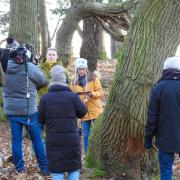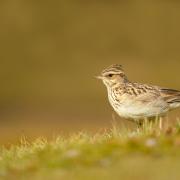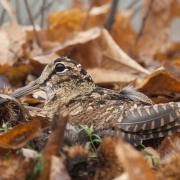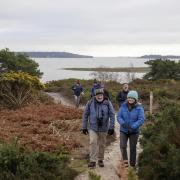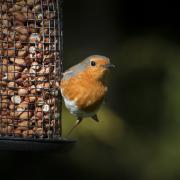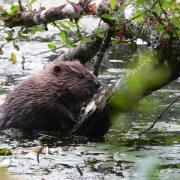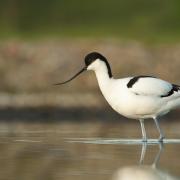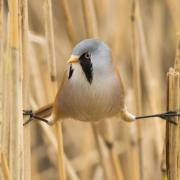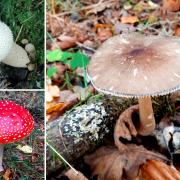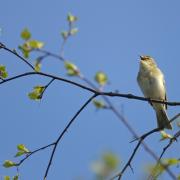Enjoying the great outdoors can benefit your health and improve your quality of life in later years. It can also open up a new world of friendship and exciting discovery, writes Sally Welbourn
Spending time in the great outdoors is both enjoyable and good for our mental, physical and emotional health. But what if being outdoors with nature was proven to reduce symptoms for debilitating illnesses?
One group of people who have found health benefits from spending time outside are those suffering from even the most advanced stages of dementia. Dorset Wildlife Trust Community Conservation Officer, Briony Baxter, has seen this first-hand: “Older people often spend more time indoors, so they don’t get ‘multi-sensory’ experiences, such as hearing bird song, or feeling a breeze in the air. These positive emotional and sensory connections can trigger a memory for example, and are an opportunity for those suffering from dementia to reminisce and stimulate their memory.”
Exposure to daylight can also help reduce the incidence of restless behaviour in people suffering from dementia. Outdoor light levels can range from 1500 – 2500 lux, while average indoor light levels are between 300-600 lux. “Daylight affects sleep patterns and mood,” explains Briony. “Elderly people have more wakeful periods and reduced REM sleep, which can disturb memory. Experiencing good contrast in day and night light levels contributes to a good sleep regime, as bright light suppresses the sleep hormone, melatonin.”
We’ve seen that nature looks after us physically, but what about mentally and socially? Age UK, the country’s largest charity dedicated to helping everyone make the most of later life, found that 50% of older people consider the television to be their main form of company, which is a worrying statistic in a highly populated society in which people are living for so much longer.
“Guided walks and clubs not only provide new friends, new experiences and new things to learn, but they re-connect people to their communities and the natural world,” says Briony. In a way it’s a similar to the experiences you have when you were much younger, such as youth clubs or after school sporting fixtures - opportunities where you could get together and socialise.
“The Wildlife Trusts believes that everyone should have the opportunity to be physically, mentally and emotionally happy, and we now have the evidence to show that when nature plays a key part of a person’s life, it can contribute positively to their sense of wellbeing,” adds Briony.
In its 2010 Framework for Developing Wellbeing, HM Government put nature at the centre of its definition of wellbeing, stating: ‘a positive state of mind and body, feeling safe and able to cope, with a sense of connection with people, communities and the wider environment.’
If the natural world represented a partner in life – something which can significantly improve our happiness and wellbeing – here at Dorset Wildlife Trust, we believe that everyone should try a date with nature. Whether you’re 18 or 80, you’ll always find something in common and it’s easy to find – you just need to step outside.
5 ways to get together with nature in 2016
• Wildlife gardening - Create a mini nature reserve outside your door. Wildlife friendly gardening is a rewarding hobby for all ages. Find out more dorsetwildlifetrust.org.uk/wildlife-gardening.
• Become a volunteer - Get outside, learn new skills and make new friends as a wildlife volunteer. No skills required just enthusiasm. You can find out more at dorsetwildlifetrust.org.uk/volunteering.
• Citizen science - Every month Dorset Wildlife Trust asks for sightings of a selected species of wildlife. In January it is the fox. Tell us about your fox sightings in Dorset at dorsetwildlifetrust.org.uk/wildlife.
• Join a guided walk or wildlife activity - Whether taking the kids on a rockpool ramble or going for a wildlife walk with a group of friends, DWT has a whole host of activities for all ages throughout the year. Find an event near you at dorsetwildlifetrust.org.uk/events.
• Visit a nature reserve - Our nature reserves are open 24/7 and they are free! The Trust currently has 44 nature reserves across the whole of Dorset, so there’s one close by to you. Start exploring in 2016 by visiting dorsetwildlifetrust.org.uk/reserves.






